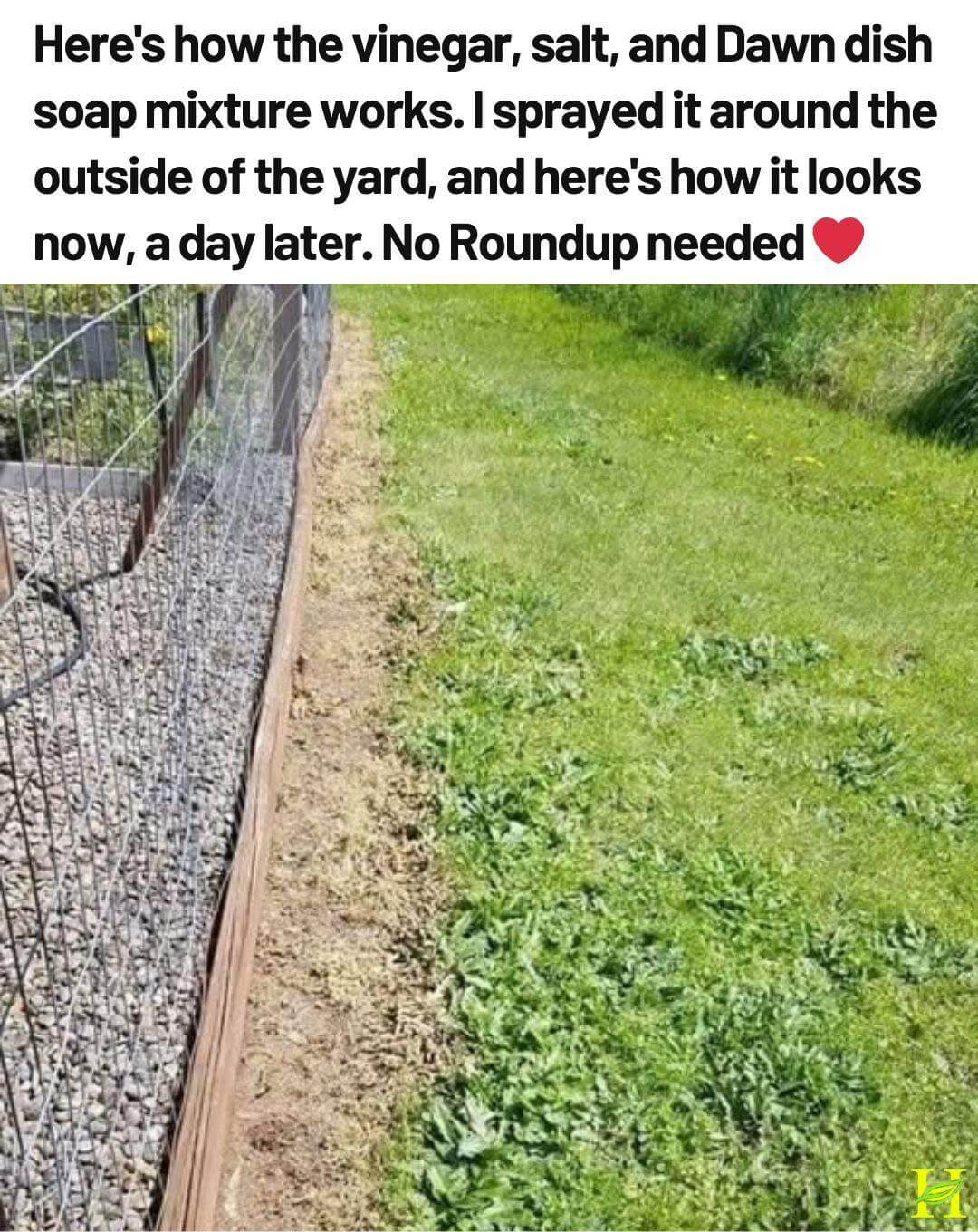Try these vinegar-based weed-killer recipes and enjoy a natural, chemical-free way to tackle unwanted plants in your garden.
Weeds can quickly overrun gardens, lawns, and driveways, but using synthetic herbicides isn’t always the safest choice. If you prefer a more natural and environmentally friendly solution, vinegar is a powerful and affordable alternative. It’s free from harmful chemicals and commonly used for organic weed control.
This article explains how vinegar functions as a weed killer, how to apply it effectively, and includes easy DIY recipes to make your own natural herbicide.
Does Vinegar Really Work Against Weeds?
Absolutely. Vinegar can be very effective in killing many common weeds when applied properly. The high acid content damages the plant tissues, causing the weeds to dehydrate and die. It’s especially efficient on younger, annual weeds such as dandelions or crabgrass. For more persistent, deep-rooted weeds, vinegar may need to be applied several times.
How Vinegar Acts as a Natural Herbicide
The key component in vinegar is acetic acid. When sprayed on a weed’s foliage, the acid removes moisture, effectively “burning” the plant. This can cause smaller weeds to wither in just a few hours. However, because vinegar doesn’t usually reach the roots, it might not fully kill perennial weeds unless applied repeatedly.
Best Types of Vinegar for Killing Weeds
The strength of the vinegar you choose plays a big role in its effectiveness:
Household Vinegar (5% Acetic Acid):
- Works well on young, shallow-rooted weeds
- Safe to use around flower beds or vegetable gardens in moderation
Horticultural Vinegar (20–30% Acetic Acid):
- More powerful and effective on mature or stubborn weeds
- Requires caution—protective gloves and goggles are recommended
Top DIY Vinegar Weed-Killer Recipes
Here are several tried-and-true recipes to help you kill weeds naturally. Apply these mixtures on dry, sunny days for best results.
1. Plain Vinegar Spray
This is the most straightforward method.
Ingredients:
- 1 gallon of vinegar (choose strength based on weed type)
Instructions:
- Pour the vinegar into a spray bottle or garden sprayer
- Coat the leaves of the weeds thoroughly
- Use during peak sunlight hours for best results
2. Vinegar with Salt and Dish Soap
Adding salt intensifies the drying effect, and dish soap helps the solution cling to leaves.
Ingredients:
- 1 gallon of vinegar
- 1 cup of salt
- 1 tablespoon of dish soap
Instructions:
- Mix all ingredients in a spray bottle
- Shake well
- Apply directly to weed leaves
Note: Avoid spraying on soil or near desired plants, as salt can alter the soil and inhibit future growth.
3. Vinegar and Lemon Juice Combo
Lemon juice raises the acidity, making it more potent on tougher weeds.
Ingredients:
- 1 gallon of vinegar
- ½ cup of lemon juice
Instructions:
- Combine both ingredients in a spray bottle
- Spray directly onto weeds
- Reapply as needed for stubborn growth
Tips for Effective Vinegar Weed Control
- Apply on sunny days: Sunlight boosts vinegar’s drying effects
- Spot treat: Only spray the weeds you want to remove—vinegar will harm other plants too
- Repeat if necessary: Stubborn or well-rooted weeds may need multiple treatments
- Use protection: If using high-strength vinegar, wear gloves and eye protection
- Test first: If working near other plants, try a small area to avoid accidental damage
Does Vinegar Kill Weeds Permanently?
While vinegar is effective against smaller and surface-level weeds, it may not destroy deeper roots in one go. Persistent application can eventually weaken and kill perennial weeds, though it may take time. Recipes containing salt can sterilize soil, so avoid using them where you plan to plant anything later.
Pros and Cons of Using Vinegar on Weeds
Pros:
- Natural and eco-friendly
- Safe around children and pets when used properly
- Inexpensive and easy to prepare
- Effective on young or small weeds
Cons:
- Non-selective and may harm nearby plants
- May require several applications
- Salt-based mixes can damage soil long-term
- Less effective in cloudy or rainy conditions
Conclusion: Is Vinegar Right for Your Weed Problem?
Vinegar is a reliable, natural way to control weeds, especially smaller or annual ones. Though it may not eliminate deeply rooted perennials on the first try, continued use can offer good results. Whether you choose straight vinegar or combine it with other natural ingredients, this chemical-free method can help keep your garden tidy while staying environmentally responsible.
Give these simple vinegar recipes a try, and enjoy weed control without relying on harsh synthetic herbicides.
